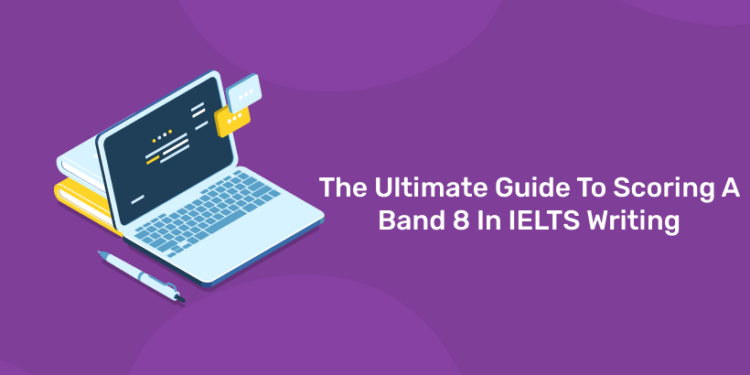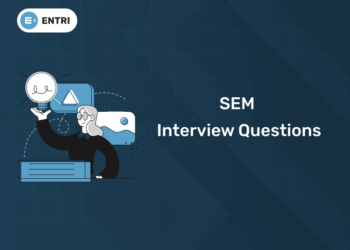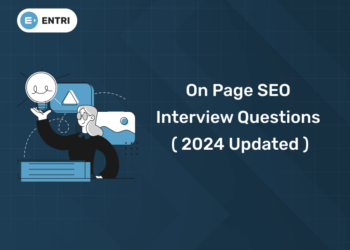Table of Contents
In the pursuit of academic and professional aspirations, the International English Language Testing System (IELTS) holds a prominent place as a benchmark of language proficiency. Among its components, the IELTS Writing module plays a crucial role in evaluating candidates’ ability to communicate effectively in written English. For those aspiring to reach the prestigious Band 8 level, this ultimate guide is a valuable resource on the path to success. Packed with expert tips, proven strategies, and extensive practice exercises, this comprehensive guide is designed to empower candidates with the necessary tools to excel in the IELTS Writing test and achieve that coveted Band 8 score. Join us on this transformative journey to elevate your writing skills and unlock a world of opportunities.
What is IELTS Writing?
IELTS writing is a module in the IELTS exam that measures how well you can write the English language. There are two tasks in the IELTS exam.
- IELTS writing task 1
- IELTS writing task 2
IELTS writing task 1
You have to write a minimum of 150 words in this writing task. The IELTS writing task 1 is different for both types of IELTS exams (IELTS Academics and IELTS General Training).
For IELTS Academics, the test takers have to describe the information they can see in the image (graph/ table/ chart/ diagram) given to them.
For IELTS General training, the test takers are asked to write a letter (formal/semi-formal/ informal).
Candidates should not spend more than 15 to 20 minutes on IELTS writing task 1.
IELTS writing task 2
The candidates must write a minimum of 250 words for this task. For both types of IELTS exams, this question is the same. In this, you will be asked a general question, and you have to answer that question according to your knowledge.
You will have 60 minutes for both questions in IELTS writing, and don’t spend more than 35 to 40 minutes for IELTS writing task 2.
How To Score Band 8 In IELTS Test?
In order to get 8+ band score in IELTS test, one should get 89% of the marks. IELTS reading and listening tests have 40 questions, in which 36 questions should be answered each in order to get an 8 band score.
Tips To Improve IELTS Band Score
To improve the IELTS Band score go through the following instructions.
Writing
- Make sure that your answer is easily understandable.
- Focus on grammar and accuracy
- Ideas must be clearly explained
Reading
- Regular practice on reading
- Differentiate between skimming and scanning thoroughly
Listening
- Listen to English language more, be it news or videos or anything
- Practice regularly
Speaking
- Should be fluent
- Pronunciation should be clear
- Ideas should be delivered clearly and with all clarity.
- Grammatical errors should be avoided
Guide To Score A Band 8 in IELTS Writing
To achieve a band 8 in IELTS Writing, you will need to produce an essay that contains all the positive features contained in the band 8 writing assessment criteria.
Step 1: Make sure the answer is relevant to the question. Use ideas and examples that you are familiar with, and that relate directly to the topic. Extend your answer to include a number of ideas that will support the question.
Step 2: Try to answer all parts of the question. Present your opinion and support it throughout the whole essay. If asked to present both views, make sure each view is presented equally (similar paragraph length). Watch for plurals. If you are asked to give ‘advantages’, you must present a minimum of 2 . Watch for ‘and’. You may need to comment on more than one element . Write more than 250 words.
Step 3: Organize your essay logically, with clear progression using linking phrases. Use a range of linking words and phrases, but don’t overuse them. Use adverbial phrases, rather than single basic linkers. Use referencing and substitution to avoid repetition (this/them/the issue/the problem). Use punctuation to make your writing coherent. Make sure your ideas are sequenced correctly. Make sure your ideas are logical and easy to follow. Use a separate paragraph for the introduction and the conclusion .Use one paragraph for each idea or topic area.
Step 4: Organize your essays into paragraphs. Use an introduction and a conclusion. Use a paragraph for each topic. Leave a space between each paragraph. Use a paragraph for each topic.
Step 5: Use less common vocabulary and spell it correctly. Use precise word choices. Use language that we use in everyday speech. Use words that you understand. Use words and phrases that are related to the topic .Use collocation and phrasal verbs (words that go together naturally).
Step 6: Don’t use memorised language, phrases or examples.
Step 7: Use a variety of complex sentence structures. It is important to use a mix of complex and simple sentences. But remember, your complex sentences should not be long and complicated. Your punctuation needs to be accurate, using capitalisation, commas and full stops correctly.
Step 8: Checklist. Use the following checklist to make sure that your writing contains all the positive features at a band 8.
- Did you answer ALL parts of the question sufficiently?
- Are all your ideas and support directly relevant to the question?
- Did you avoid over-generalising the topic?
- Does the examiner know exactly what you think, and do you present this position clearly for the whole essay?
- Did you support your ideas with clear examples [not vague research and survey results]?
- Did you write over 250 words?
get your desired band score ! join to get a free demo video !
Tips For IELTS Writing
- Check the number of words, you need to write 250 words min for task 2 and 150 words minimum for task 1
- Know your approach, different tasks require different approaches.
- Check your work for any errors in grammar, spelling, repetitive usage of statements or words etc. if found, rectify them.
- Work on your grammatical range and lexical resource
- When you write your answers, remember the examiners are grading you on your expression. There are no wrong or right answers.
- Examine the questions properly and see that you cater to all parts of the question.
- Remember to stick to the word limit. If you happen to write lesser than 150 words in Task 1 or lesser than 250 in Task 2, you will lose marks.
- Always write the answers in your own language. If you use the words from the question exactly, you will not be given marks for the same.
- Do not use bullets in your answers, always write them in full. Arrange your basic ideas into different paragraphs. This shows the examiner how well you can organise your points.
- Do not concentrate on writing long and complicated answers. Write well, coherent and organise your thoughts well. Ensure, your grammar is immaculate.
- When attempting Academic Writing Task 1, you will have to select and compare relevant information from data presented in a graph, table or diagram. When writing the introduction, never copy the text from the question. Always use your own words.
- Task 2 of the Academic Writing test is an essay. Always plan the structure of your essay beforehand. Place a nice introduction, supporting ideas and real-life examples, followed by a conclusion.
- You are given 40 minutes to complete your essay for Task 2. Always take five minutes to first plan your answer before you start writing, and five minutes in the end to review for any mistakes.
- In your essay, keep the last paragraph for a valid conclusion of all the points you’ve made in the answer.
- Do not confuse between singular and plural nouns. Always double check your answers for this common mistake.
- Remember, spellings are everything. Standard American, British and Australian spellings are all acceptable in IELTS.
FAQ’S
Q: Do examiners really count the words for IELTS writing tasks?
Ans: Yes, and if your answer is below the word count, you will automatically lose half a band. The fewer the words you write, the more your band score will go down. To make sure you are writing enough, spend time writing practice tests according to proven strategies. Watch my video lessons, which provide timed writing demonstrations o see how I plan and write answers at 8/9 band score.
Q: How important is spelling, vocabulary, punctuation and grammar?
Ans: if your vocabulary and grammar are not equally effective, you will get a much lower band score. This is because vocabulary and grammar count for 50% of the marks. Another 25% is for task achievement and 25% for cohesion and coherence. Therefore, if you have weak vocabulary and grammar, you will need to spend some time improving in those areas in the context of the IELTS task 2 writing test. Improving in these areas could significantly increase your band score.
Q: What is the difference between an IELTS essay and normal essay?
Ans: There are quite a lot of differences. Firstly you will get a time limit of only 40 minutes. Second one is you will get a word limit of 250 words and thirdly IELTS mainly test your English grammar and vocabulary. That means you have to demonstrate particular skills and ability to get a better band score. Another difference is there is a particular structure for essay and use of linking devices that is recommended to follow and finally you must be familiar with the type of essay questions and how to answer the tasks completely to get more score.
Related Links
| All About IELTS Exam | IELTS Reading Practice Test |
| IELTS Listening Practice Test | IELTS Writing Practice Test |
| IELTS Speaking Practice Test |










